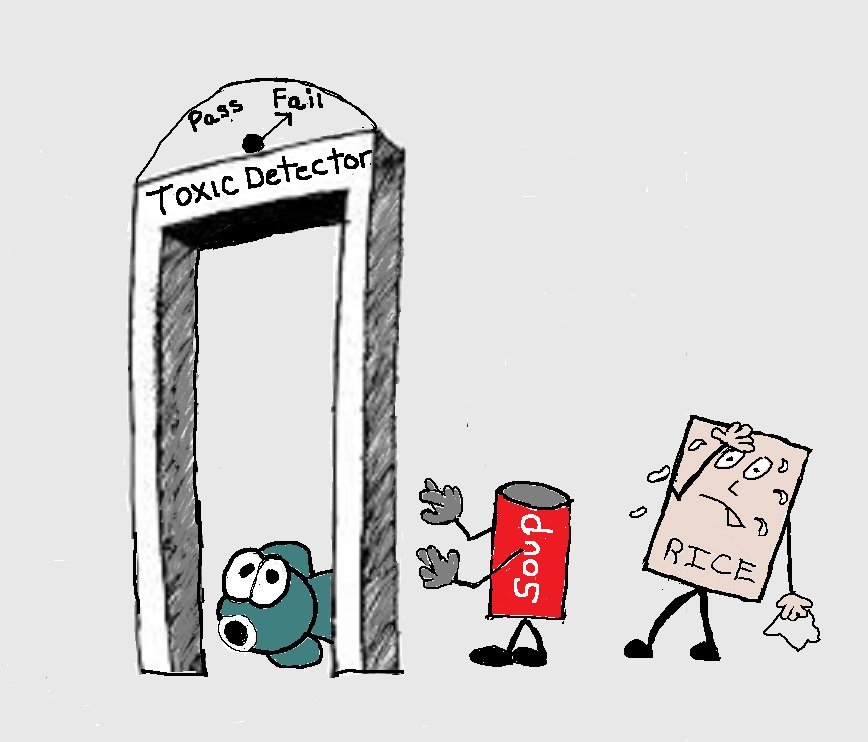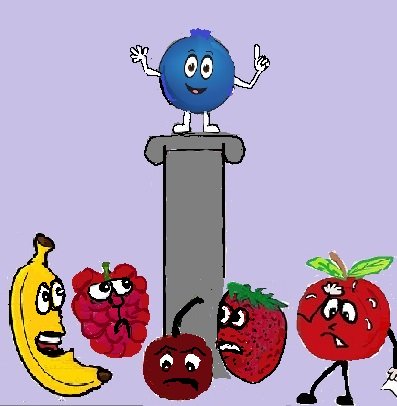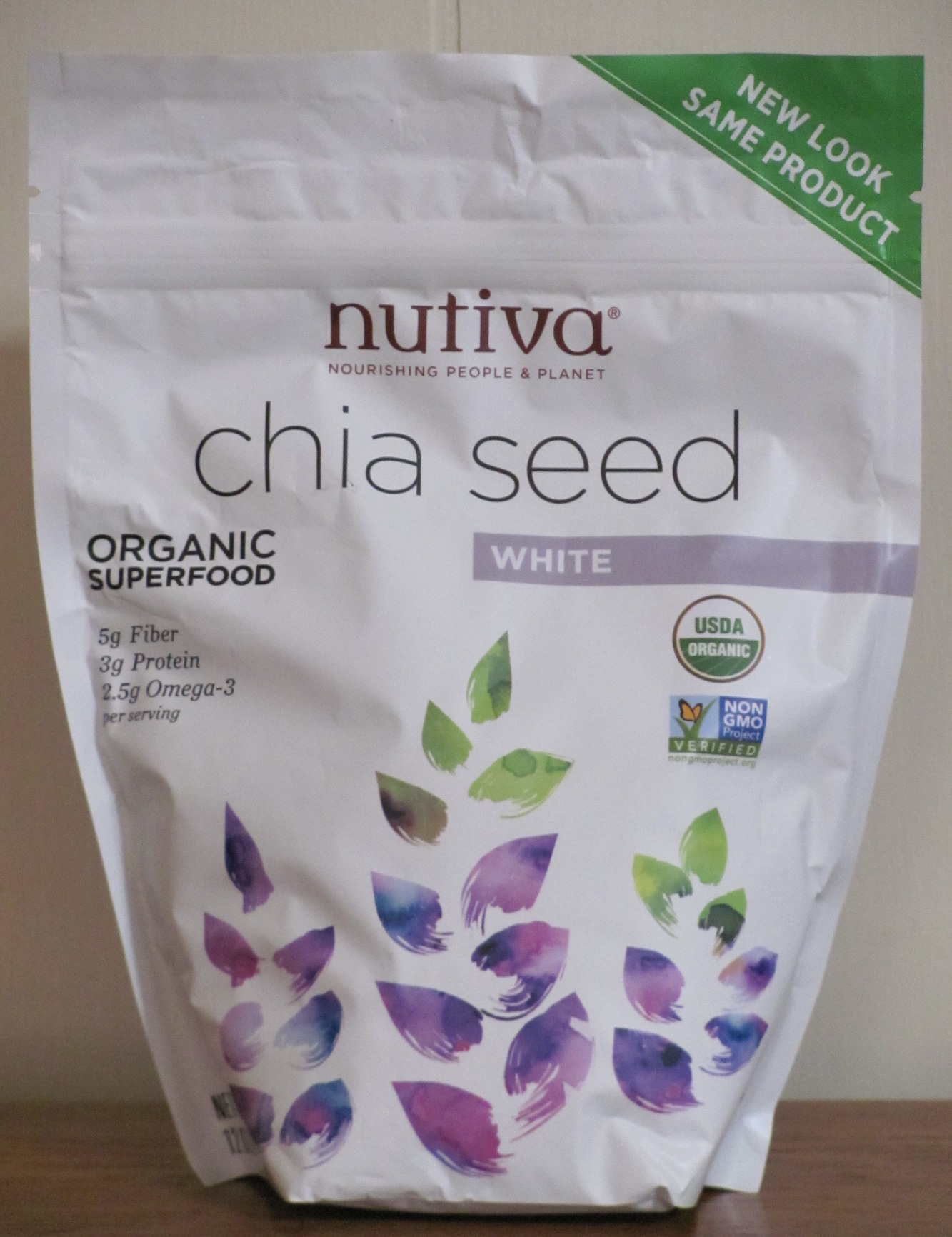- Home
- Non Toxic Food
- Diet Detox
The Proactive Diet Detox - 10 Steps To A Healthier You
A proactive diet detox is about reducing the toxic chemicals that enter your body from the food you eat. It’s an important part of less toxic living because a lot of your toxin exposure comes from your diet.
In fact, your diet is your main source of exposure for toxics like BPA, arsenic, mercury, pesticides, POPs and plastic chemicals. These chemicals get into your food during growing, processing and storage.
A detox diet on the other hand, is supposed to be about eating foods that help your body release toxins. But most detox methods, including diets, aren’t that effective at reducing the toxic chemicals in your body.
But, if they don’t go in, you won’t have to worry about getting them out. So adopt these 10 effective steps to greatly reduce the toxics you ingest.
Now I’m not going to lie to you. These changes take some effort. But the reward of better health is well worth it. After all, you are what you eat.
1. Go Organic
100's of different pesticides are used to grow fruit, produce and grains. Every year the USDA conducts sampling of produce to test for pesticide residues. In its most recent report it found pesticide residues on 53% of the produce tested.
And you eat the residues of these chemicals if your produce isn’t organic. Because studies report an organic diet dramatically reduces the levels of pesticides in your body, one of the best ways to detox your diet is by eating more organic food.
Let’s take strawberries as an example. The USDA has found 45 different pesticide residues on strawberries. Including 6 carcinogens, 16 hormone disrupters and 7 neurotoxins.
Now, many of you are probably thinking – Organic is SOOO expensive! Well tough. You can’t put a price on your health. Cut out a many-pedy every month and spend the money on organic.
After all, there are many health issues linked to pesticide exposure. Insecticides are toxic to your nervous system, and exposure to them is linked to Parkinson’s and Alzheimer’s.
Fungicides are classified as endocrine disruptors and carcinogens and linked to hypothyroidism and breast cancer. Some herbicides, like Atrazine, may cause cancer, reproductive or developmental effects, and endocrine system effects.
If you’re new to organic foods, start with the fruits and vegetables that have a high number of pesticides found on them. Begin by switching to organic apples, celery, spinach, bell peppers, cucumbers, potatoes, strawberries, grapes, peaches and cherry tomatoes.
If you live in an area where it’s tough to find organic produce you can always try online shopping for ready-made and dehydrated options. Some companies I recommend are Made in Nature Organic and Homegrown Organic Farms.
There are plenty of good organic dried fruit options. One of my favorites is Anthony's Organic White Mulberries. And a fun way to add organic produce to smoothies is with Biofinest Juice Powders.
2. Go Can Free
Eating canned food exposes you to high amounts of BPA because food cans are lined with an epoxy coating made with BPA. And BPA easily leaches from this lining into your food, especially when the foods are acidic.
BPA is a nasty toxic chemical. Exposure to BPA, even in small amounts, can disrupt your endocrine system, leading to obesity, diabetes and insulin resistance.
And cans labeled BPA free may not be any safer. Many BPA substitutes are found to be just as toxic as the original. For example, some cans are lined with polyvinyl chloride (PVC).
PVC is made with the carcinogen vinyl chloride and a slew of additives that may leach into your food. These include phthalates, organotins, lead, cadmium, and chlorinated and brominated flame retardants.
As part of a diet detox it is possible to go can free. I did it 4 years ago. Replacing canned foods with fresh and frozen foods can dramatically cut your BPA exposure. One study reported that after only 3 days of eating fresh foods, BPA levels in the study participants dropped 66%.
Also, now there are more options available in foil and cardboard containers. Some of the products I rely on to be can free include Pomi and Bionaturae tomato products, and Green Valley and Jyoti bean pouches.
3. Limit Brown Rice and Rice Products
Arsenic is a cancer-causing toxin that is absorbed into plants from the soil it’s grown in. Some foods, like brown rice, usually contain high amounts of arsenic. (Fish and drinking water are also sources of exposure.)
This toxic chemical is known to cause skin. liver, kidney, and bladder cancer. Researchers have also found that it affects your gut health. When you ingest arsenic it kills off some of your good gut bacteria and increases the bad.
Besides rice, brown rice syrup, rice milk and rice pasta are all sources of exposure.
So, to reduce your exposure to arsenic, reduce your consumption of brown rice and brown rice products to no more than one serving a week.
Substitute
other grains like farro, which has a texture very similar to rice, for
brown rice and avoid products with brown rice syrup.
4. Eat Less Red Meat
Most researchers agree that 30–35% of cancer cases are linked to diet. And, based on a lot of scientific evidence, one of the most notorious cancer-causing foods is red meat.
Red meat contains amino acids that stimulate the production of insulin and increase oxidation in the body, both of which boost cancer risk. In one study, women who ate well-done meat three times a week increased breast cancer risk by over 400 percent.
And, when comparing people who rarely eat red meat to people who eat it almost every day researchers found:
- Risk of bladder cancer increased by 25%
- Risk of esophageal cancer increased 38%
- Risk of gastric cancer increased 45%
- Risk for esophageal, colorectal, liver and lung cancer increased from 20-60%
5. Cut Out Processed Meat
Processed meats like sausage, bacon, hot dogs and lunch meat, are classified as carcinogenic to humans. Eating these things increases your risk of getting several types of cancer, like colorectal, lung, gastric, prostate, bladder, oral cavity and oropharynx cancer.
And, it's mainly the added nitrites and nitrates that are to blame. Nitrosamines and nitrosamides, both potent carcinogens are substances formed when nitrates and nitrites combine with the parts of protein called amines.
To achieve this diet detox step reduce how much red and processed meat you eat.
- Substitute chicken and turkey breast or soy for steak and pork.
- Rethink your cold cut sandwiches. Replace with nut butters (in glass jars) like Artisana 100% Organic Raw Walnut Butter and Woodstock Almond Butter. Cook up a chicken breast and make sandwiches and chicken salad. Make black bean burgers or try one of the many varieties of veggie burgers.
- Instead of using sausage in your recipes make mini baked turkey or chicken meatballs. A bowl of these and a bowl of organic hard boiled eggs in the fridge are a healthy snack.
- Add more non-meat high protein options to your diet, like low fat yogurt, beans, nuts and seeds.
- Consider becoming a Flexitarian - someone who eats mostly plant-based foods, but occasionally eats meat, poultry and fish. This approach to healthy eating is the central theme of the Mediterranean Diet.
6. Cut Back on Fat
Some toxins dissolve easily in fat and are difficult to break down, either in your body or the environment. These Persistent Organic Pollutants or POPs include the long ago banned pesticide DDT, PFCs (the chemicals that make things stain and stick resistant), flame retardants and polychlorinated biphenyls (PCBs).
POPs love to hang out in your body fat and the body fat of the animals you eat. When you eat animals (meat and dairy), the POPs in their body fat become your POPs.
POPs can linger for years in your fat, giving them plenty of time to make you sick. And some POPs can trigger chronic inflammation in your body.
Endocrine disrupting phthalates also tend to be found at higher levels in fatty foods. They escape from food contact materials and migrate into food during processing, packaging, and preparation.
To reduce your exposure to POPs and phthalates in the food you eat, reduce the amount of animal fat you eat.
That means replace full fat dairy with low fat options, add leaner sources of protein and beans to your diet and eat more plant-based foods.
And eat fish that are lower on the marine food chains because they contain lower levels of POPs. Avoid Large, predatory fish like sharks and swordfish and long-lived fish like albacore tuna.
7. Use Clean Sources Of Omega 3
Getting enough Omega 3 in your diet is important to your health. If your diet includes too many sources of Omega 6 and not enough Omega 3 it creates an imbalance in your body that causes body inflammation. And body inflammation leads to disease.
But relying on fish, a common source of Omega 3, can expose you to high levels of POPs and mercury.
So don’t rely solely on fish. There are Omega 3 alternatives to eating fish that provide the same health benefits without the health risks.
Opt for less toxic sources like Chia Seeds, Ground Flaxseed, Hemp Seed and English Walnuts. Chia seeds can be white or black and there’s no nutritional difference between them.
One tablespoon of these nutritious seeds provides 2.5 grams of Omega-3, 3 grams of protein and 5 grams of fiber. They are easily added to your diet. Just sprinkle them in cereal, add to baked goods and salads or soak in liquid to form a chia pudding.
8. Avoid Most Sweeteners
Many types of sweeteners, both artificial and natural, are toxic to your body. The main culprit is fructose. Fructose is linked to the rising incidence of obesity, type 2 diabetes and nonalcoholic fatty liver disease.
It may also increase your heart disease and cancer risks. Plus, fructose can only be broken down in the liver. And as it gets metabolized, uric acid and free radicals form, which can trigger inflammation and damage cells.
The best option to achieve this diet detox step is to cut way back on anything sweet. But, I know how tough that can be. So, when you need a sugar fix at least avoid things that are sweetened with the following.
High Fructose Corn Syrup – It has been linked with asthma in US children and high-schooners and chronic bronchitis in US adults aged 20–55. One study reported that drinking non-diet soda 5 or more times a week was associated with nearly twice the likelihood of having chronic bronchitis.
Artificial Sweeteners - Evidence has been mounting over the past 10 years that the health of your gut contributes to your overall health. Several recent studies have found that artificial sweeteners can disrupt your gut bacteria (microbiota). Aspartame, Saccharin and Sucralose have all been found to alter the composition of your microbiota and also how it functions.
Plus, drinking artificially sweetened drinks can affect your brain. Researchers found that people who drank diet soda daily were almost three times as likely to develop stroke and dementia within the next 10 years when compared to those who did not consume diet soda. And drinking one diet soda per day was associated with smaller brain volume.
Agave - Although once considered a safe natural sweetener, agave has a higher fructose content than any other common sweetener, more even than high fructose corn syrup. And remember, fructose is the enemy.
Instead, sweeten your diet with raw honey and organic maple syrup. They both have much less fructose than agave. I use maple syrup a lot, including maple syrup sugar for baking. They are not low cal though.
Stevia and monk fruit syrup are good zero calorie, nontoxic options. Stevia is a plant native to South America. It’s leaves are 200 to 300 times sweeter than sugar. Look for the purified form of stevia leaves, called stevioside, stevia extract or stevia rebaudiana.
Monk Fruit Extract comes from the fruit of Siraitia grosvenorii. It is about 300 times sweeter than sugar. You can buy it as a standalone sweetener under the brand name Monk Fruit In the Raw.
9. Reduce The Plastic/Food Combos In Your Diet
Plastics and food are a bad combo. Plastics are not stable and many of the toxic chemicals in them aren't chemically bound. That means that carcinogens like antimony and BHA/BHT and endocrine disruptors like phthalates and BPA are released. And once released, these toxics are easily absorbed into your food.
So to detox your diet you need to reduce the plastic/food combos in your diet. This is the most frustrating step to achieve. Just try and find turkey burger that isn't wrapped in one of those plastic-styrofoam contraptions.
But, you'll have better luck with non-perishables. For items like condiments, salsa, nut butters and salad dressings choose those packaged in glass instead of plastic.
Also, replace your plastic food storage containers with glass or stainless steel. To wrap leftovers and lunches use aluminum foil instead of plastic wrap. Or try beeswax wraps.
Another new option for storage and lunches are reusable silicone ziploc bags. I was really excited to see these are now available as a nontoxic option to plastic bags. And you can use them to freeze foods.
Just don't heat foods in them. Based on the research I uncovered, silicone cookware isn't stable. When used at temperatures above 200° F silicone cookware releases VOCs into your air and siloxanes into your food.
10. Filter Your Water
Your diet detox will not be complete until you protect yourself from the hundreds of toxic chemicals that may be in your drinking water. And while you don't eat the same food every day, you do drink the same water. That means constant exposure to the toxic chemicals in your tap water.
For all you need to know about water quality and filters check out Common Tap Water Toxins And The Filters That Remove Them and Water Quality and Your Health.
Food should nourish you, not be a source of toxin exposure that may lead to disease. This proactive diet detox is an effective way to reduce the toxins you eat.
Other Posts You May Like
 How To Detox Your Body Part II How To Detox Your Body Part II |





